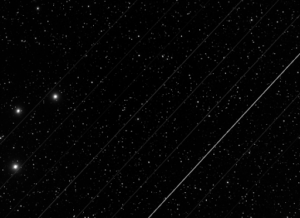-
Discover How AI is Utilized Across UW

By: Louisa Gaylord Earlier this week, the eScience Institute co-hosted Discovering AI@UW, an event that brought together artificial intelligence experts from across the University of Washington campus to discuss their projects and how they intersect. Over 180 people attended the event, both streaming online via zoom and in person in the Lyceum Room of the…
-
Evolving the Hackweek Model with ICESat-2 2022

By: Scott Henderson and Louisa Gaylord The eScience Institute hosts a variety of hackweeks every year, which are designed to immerse participants in collaborative project work around a specific topic. Hackweeks try to blend elements of a hackathon, where participants work collaboratively in project teams, with tutorials on a variety of data science topics in…
-
Python for Humanities: an Intro for Researchers

By: Louisa Gaylord Last week the eScience Institute and UW Libraries Open Scholarship Commons co-hosted a workshop called “Python, your personal research assistant” for participants studying the humanities to explore the Python programming language and how to use it as a tool to aid in qualitative humanities work. Led by eScience Technical Education Specialist Naomi…
-
Mapping Fungal Relationships in Trees

By: Louisa Gaylord Korena Mafune is a 2021 Washington Research Foundation postdoctoral fellow in the University of Washington’s Department of Civil and Environmental Engineering, where she studies the symbiotic interactions among plants, fungi, and bacteria. She received her PhD from UW’s School of Environmental and Forest Sciences, where she studied the root-associated fungal communities of old-growth…
-
Mapping Fungal Relationships in Trees

By: Louisa Gaylord Korena Mafune is a 2021 Washington Research Foundation postdoctoral fellow in the University of Washington’s Department of Civil and Environmental Engineering, where she studies the symbiotic interactions among plants, fungi, and bacteria. She received her PhD from UW’s School of Environmental and Forest Sciences, where she studied the root-associated fungal communities of…





